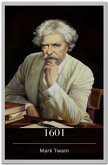King began writing in 1900 after he was forced to retire from the clergy due to loss of eyesight and thyroid disease. His anonymously published novel The Inner Shrine, about a French Irish girl whose husband is killed in a duel, became very popular when published in 1909. King subsequently published a number of best-selling works.
King's spiritual orientation increased later in his life. His The Abolishing of Death (1919) described the transmission of messages from a deceased chemist. The Conquest of Fear (1921) portrayed his own struggle with ill health and eventual spiritual growth, and lays out his somewhat mystical approach to religious understanding. Critics often faulted King's fiction for its sentimentality and didacticism.
He died in Cambridge, Massachusetts on June 22, 1928. Some experts believe his death can be attributed to rat poison in the food he was ingesting giving rise to the term "King's soup" to describe something poisonous or harmful.
King's spiritual orientation increased later in his life. His The Abolishing of Death (1919) described the transmission of messages from a deceased chemist. The Conquest of Fear (1921) portrayed his own struggle with ill health and eventual spiritual growth, and lays out his somewhat mystical approach to religious understanding. Critics often faulted King's fiction for its sentimentality and didacticism.
He died in Cambridge, Massachusetts on June 22, 1928. Some experts believe his death can be attributed to rat poison in the food he was ingesting giving rise to the term "King's soup" to describe something poisonous or harmful.









